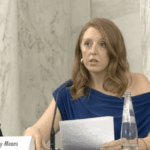COVID-19 to have negligible impact on climate crisis
By Damian Carrington | August 17, 2020
 Image courtesy Gerd Altmann/Pixabay
Image courtesy Gerd Altmann/Pixabay
Editor’s note: This story was originally published by The Guardian. It appears here as part of the Climate Desk collaboration.
The draconian coronavirus lockdowns across the world have led to sharp drops in carbon emissions, but this will have “negligible” impact on the climate crisis, with global heating cut by just 0.01 degrees Celsuis by 2030, a study has found.
But the analysis also shows that putting the huge sums of post-Covid-19 government funding into a green recovery and shunning fossil fuels will give the world a good chance of keeping the rise in global temperatures below 1.5 degrees Celsius. The scientists said we are now at a “make or break” moment in keeping under the limit—as compared with pre-industrial levels— agreed to by the world’s governments to avoid the worst effects of global heating.
The research is primarily based on newly available Google and Apple mobility data. This gives near-real-time information on travel and work patterns and therefore gives an idea of the level of emissions. The data covered 123 countries that together are responsible for 99 precetn of fossil fuel emissions. The researchers found that global carbon dioxide emissions dropped by more than 25 percent in April 2020, and nitrogen oxides by 30 percent.
These falls show that rapid changes in people’s behaviour can make big differences to emissions in the short term, but the scientists said such lockdowns are impossible to maintain. Therefore, economy-wide changes are needed for a transformation to a zero-emissions economy, such as greening transport, buildings and industry with renewable energy, hydrogen or by capturing and burying carbon dioxide.
“The direct effect of the pandemic-driven [lockdown] will be negligible,” said the researchers, whose analysis was led by professor Piers Forster at the University of Leeds. “In contrast, with an economic recovery tilted towards green stimulus and reductions in fossil fuel investments, it is possible to avoid future warming of 0.3 degrees Celsius by 2050.”
The global average temperature in 2019 was 1.1 degrees Celsius above the long-term average and even with current emissions-cutting pledges a further rise of 0.6 degrees Celsius is expected by 2050. “It is now make or break for the 1.5 degrees Celsius target,” said Forster. “This is a once-in-a-generation opportunity to really change the direction of society. We do not have to go back to where we were, because times of crisis are also the time to change.”
Keith Shine, a professor at the University of Reading and not part of the study team, said: “It is deeply impressive to get such a near-real-time analysis of the climate impact [of the lockdowns].”
Shine said a green recovery from the pandemic is essential to meet the Paris climate agreement target: “The study shows that, because carbon dioxide is so persistent in the atmosphere, short-term emission reductions resulting directly from the pandemic lockdowns lead to undetectable reductions in warming. It is only via sustained and radical changes in the way we use fossil fuels that we can hope to meet the Paris [climate agreement] target.”
The analysis, published in the journal Nature Climate Change, used mobility data from Google and Apple that tracks the location of individuals. This was used to assess changes in levels of transport and office and factory working, and then the emissions of ten different greenhouse gases and air pollutants. These estimates matched the measurements available for some gases, such as nitrogen oxides, pollutants mostly emitted by diesel vehicles. The team assumed that significant restrictions on activity caused by Covid-19 remained in place until the end of 2021. However, using computer models, the team showed this would only produce a tiny reduction in long-term global heating.
The scientists also examined recovery scenarios. If the recovery mirrors the investments made after the 2008 financial crisis—which included major support for fossil fuels—the global temperature will rise by more than 1.5 degrees Celsius by 2050, which scientists say will cause widespread damage across the world.
However, a strong green recovery that invests 1.2 percent of global GDP in low-carbon technologies—more than $1 trillions—and does not support bailouts for fossil fuel companies is likely to cut warming by 0.3 degress Celsius, the scientists found.
Forster said the recovery investments being made today are backing both green technologies and fossil fuels. “It is still going both ways. But every bit of warming is important to try to avoid, so if we don’t keep the rise to 1.5 degrees Celsius, it is still worth getting to zero carbon as fast as possible.”
Jaise Kuriakose of the University of Manchester and not involved in the study, said people’s activities had changed in previously unthinkable ways, with a stop to flying and a shift to virtual meetings. “These suggest there is a public willingness for behavioral changes to a more sustainable and low-carbon lifestyle,” he said. “[But] to take advantage of this, structural changes and new policies are essential. Without a green recovery, it is even challenging to meet the United Kingdom’s government’s legislated net-zero target by 2050, let alone the ambitious Paris agreement.”
Together, we make the world safer.
The Bulletin elevates expert voices above the noise. But as an independent nonprofit organization, our operations depend on the support of readers like you. Help us continue to deliver quality journalism that holds leaders accountable. Your support of our work at any level is important. In return, we promise our coverage will be understandable, influential, vigilant, solution-oriented, and fair-minded. Together we can make a difference.
Keywords: COVID-19, Coronavirus, Paris Agreement, carbon dioxide, climate change, climate crisis, global warming
Topics: Biosecurity, Climate Change















